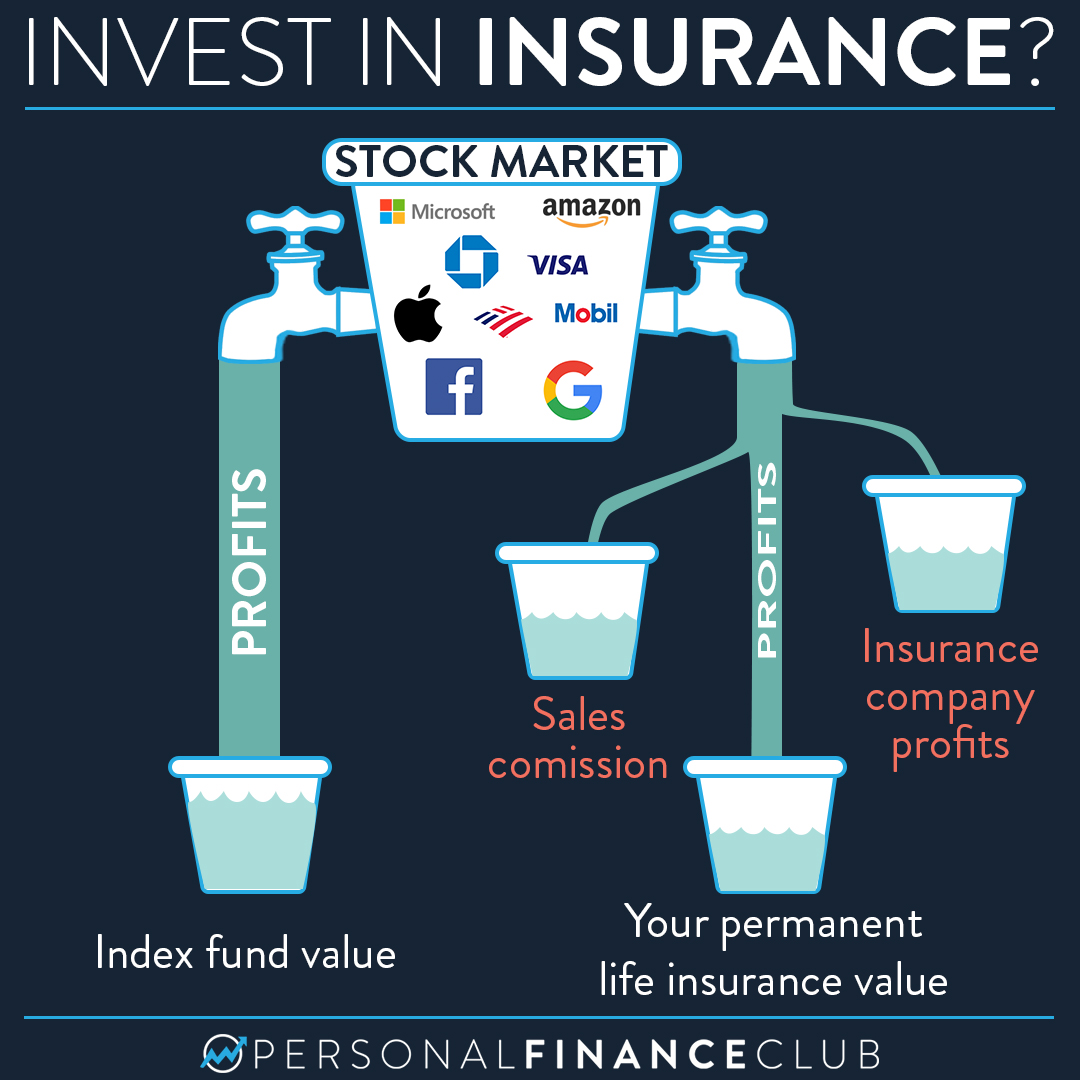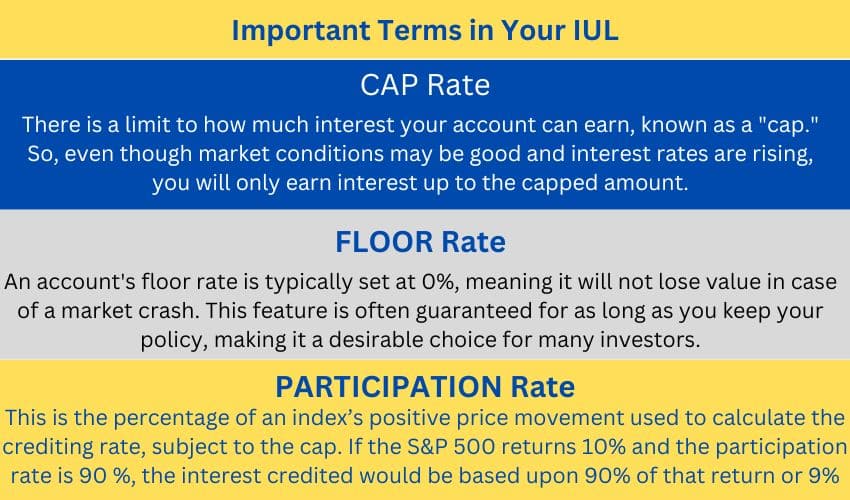All Categories
Featured
Table of Contents
Indexed Universal Life (IUL) insurance policy is a type of irreversible life insurance plan that integrates the features of typical universal life insurance policy with the capacity for cash money value development connected to the efficiency of a stock exchange index, such as the S&P 500 (IUL vs whole life). Like other forms of permanent life insurance, IUL supplies a survivor benefit that pays out to the beneficiaries when the insured dies
Cash money worth build-up: A section of the costs payments enters into a cash value account, which gains rate of interest in time. This cash money worth can be accessed or borrowed against during the policyholder's life time. Indexing option: IUL plans offer the opportunity for cash money worth development based on the performance of a stock exchange index.
Can I get Flexible Premium Indexed Universal Life online?
Just like all life insurance policy items, there is additionally a collection of threats that policyholders ought to know prior to considering this kind of plan: Market risk: Among the main threats connected with IUL is market risk. Considering that the cash money value development is linked to the efficiency of a securities market index, if the index chokes up, the money worth might not grow as expected.

Enough liquidity: Insurance holders ought to have a steady monetary circumstance and fit with the premium payment demands of the IUL plan. IUL permits for adaptable premium repayments within specific restrictions, but it's vital to maintain the plan to guarantee it achieves its designated objectives. Passion in life insurance policy protection: People that require life insurance policy protection and an interest in money worth development may locate IUL appealing.
Prospects for IUL must be able to recognize the technicians of the plan. IUL may not be the most effective choice for people with a high resistance for market threat, those that prioritize low-cost investments, or those with even more instant financial needs. Consulting with a qualified economic expert that can give tailored assistance is necessary prior to thinking about an IUL plan.
All registrants will certainly get a calendar invite and link to sign up with the webinar by means of Zoom. Can't make it live? Register anyhow and we'll send you a recording of the presentation the next day.
Who offers flexible Iul Plans plans?
You can underpay or skip premiums, plus you might be able to adjust your fatality benefit.
Money value, along with prospective development of that worth with an equity index account. A choice to designate component of the money worth to a set passion option.
Insurance policy holders can choose the portion allocated to the repaired and indexed accounts. The value of the picked index is videotaped at the beginning of the month and contrasted with the value at the end of the month. If the index boosts throughout the month, rate of interest is contributed to the cash money value.
The 6% is multiplied by the money worth. The resulting rate of interest is contributed to the cash value. Some plans determine the index acquires as the amount of the changes through, while other plans take an average of the daily gains for a month. No interest is credited to the cash money account if the index drops rather than up.
What types of Indexed Universal Life Premium Options are available?
The price is set by the insurance provider and can be anywhere from 25% to greater than 100%. (The insurer can likewise change the take part price over the life time of the plan.) As an example, if the gain is 6%, the participation rate is 50%, and the existing cash worth total is $10,000, $300 is contributed to the cash worth (6% x 50% x $10,000 = $300).
There are a variety of advantages and disadvantages to think about before buying an IUL policy.: As with common global life insurance coverage, the insurance policy holder can increase their premiums or lower them in times of hardship.: Quantities credited to the cash worth grow tax-deferred. The cash value can pay the insurance policy premiums, enabling the insurance holder to decrease or quit making out-of-pocket premium payments.
What should I look for in a Indexed Universal Life Investment plan?
Several IUL policies have a later maturation date than other kinds of universal life plans, with some ending when the insured reaches age 121 or more. If the insured is still to life during that time, policies pay the survivor benefit (yet not normally the cash worth) and the profits may be taxed.

: Smaller sized policy stated value don't provide much advantage over regular UL insurance policies.: If the index decreases, no interest is credited to the cash money value. (Some policies offer a reduced assured rate over a longer period.) Other financial investment lorries use market indexes as a benchmark for performance.
With IUL, the goal is to benefit from higher movements in the index.: Due to the fact that the insurer only buys choices in an index, you're not directly invested in stocks, so you don't benefit when companies pay returns to shareholders.: Insurers cost fees for managing your cash, which can drain cash value.
What is the difference between Iul Growth Strategy and other options?

For many people, no, IUL isn't far better than a 401(k) - IUL loan options in terms of saving for retirement. Most IULs are best for high-net-worth people looking for methods to reduce their taxed income or those who have actually maxed out their other retirement choices. For everyone else, a 401(k) is a much better financial investment vehicle since it doesn't lug the high fees and costs of an IUL, plus there is no cap on the quantity you may gain (unlike with an IUL policy)
While you might not shed any type of money in the account if the index drops, you won't make passion. If the market turns bullish, the profits on your IUL will certainly not be as high as a typical investment account. The high price of premiums and charges makes IULs costly and substantially much less cost effective than term life.
Indexed universal life (IUL) insurance supplies cash value plus a survivor benefit. The cash in the cash worth account can earn interest with tracking an equity index, and with some typically allocated to a fixed-rate account. Indexed global life plans cap how much cash you can collect (often at less than 100%) and they are based on a potentially unpredictable equity index.
What types of Iul Plans are available?
A 401(k) is a much better option for that objective since it doesn't carry the high costs and costs of an IUL policy, plus there is no cap on the amount you may make when invested. Most IUL policies are best for high-net-worth people looking for to decrease their taxed earnings. Investopedia does not supply tax obligation, financial investment, or economic services and advice.
If you're thinking about purchasing an indexed universal life plan, very first consult with a monetary advisor who can clarify the subtleties and provide you an exact image of the actual potential of an IUL policy. Ensure you understand exactly how the insurance provider will certainly determine your rate of interest price, earnings cap, and costs that might be analyzed.
Latest Posts
Guaranteed Universal Life Insurance Quotes
Death Benefit Option 1
Life Insurance Surrender Cost Index